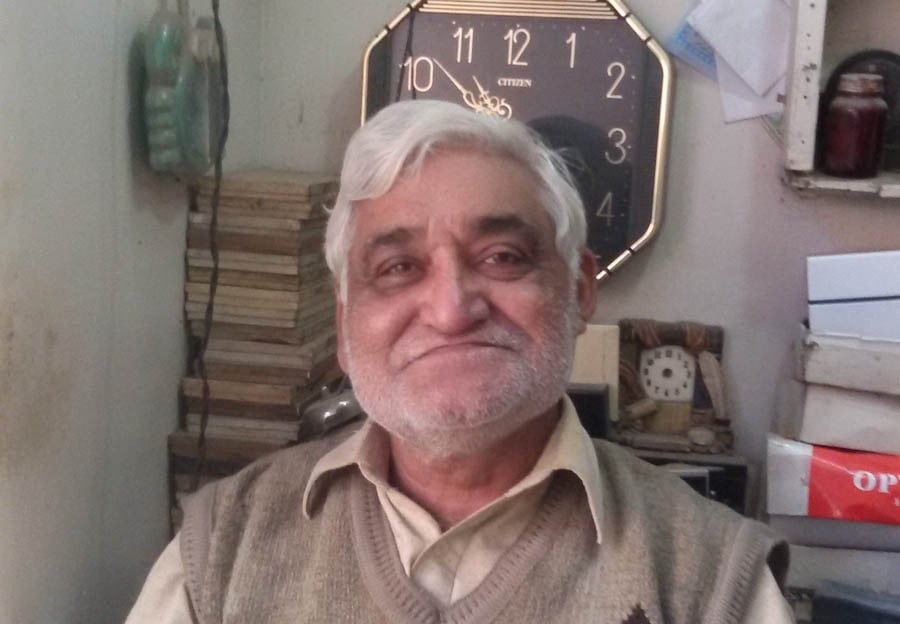
Abdul Rashid shares fond memories of the times when people like Sultan Rahi and Ghulam Mustafa Khar were among his prized clients

Abdul Rashid, 63, sits in his small shop, surrounded by watches and wall clocks. The shop is located in an old building on the Safanwala Chowk, Lahore. Once in a while, a customer drops in and initiates a conversation with him.
The customer would hand him the watch that needs to be repaired, and Rashid does the needful in a matter of a few minutes. Later, he is free. That’s his usual workday.
Rashid didn’t start in the ‘business’ recently. In fact, his story begins in in the second decade of the 20th century in Jalandhar, India, where his father (Abdul Rehman) was born and learnt the ‘art’ of watch-making, and made it his source of livelihood.
In 1942, Rehman came to Lahore and set up his own shop. He died in 1977, leaving the shop to his son who was no less interested and determined to carry on with the job.
In an exclusive meeting with TNS, the proud scion of the family says that he "started coming to the shop to assist my father, when I was merely 10 [years old]. At that time, watch-making was a lucrative profession and people from far-flung areas would visit us. There would be top officials, businessmen, actors, and random people. They trusted me as an expert in all brands like Rolex, Omega, Camy, Omex, Rado etc. In those days, the people would wear branded watches and I used to earn a handsome amount from those repairs."
Rashid recalls that he was crazy about films, and his job often brought him face to face with many showbiz stars -- "Sultan Rahi, Mazhar Shah, Iqbal Hasan, Akmal etc were my clients." Rahi’s driver was a friend and would convince the late Punjabi cultish actor to avail Rashid’s services. General Sawar Khan and Ghulam Mustafa Khar also visited him a couple of times.
Back then, the "people who wore expensive watches relied on my skills only," he claims.
Rashid particularly remembers the Bhutto era of the 1970s, when his trade was brisk. "In those days, it was common for many people to go to other countries and gift watches to their friends and relatives. So, a lot of people would wear gaudy watches and visit my shop in case there was any technical issue."
Today, almost half a century later, Rashid is a slightly discontented man. His clientele has dropped drastically. "Not many people are fond of watches and clocks now," he says, lamentingly. "Also, only a few wear branded wrist watches. Most people use the ones that run on batteries. But I must run the shop because I cannot do anything else."
Of his three sons, Rashid trained two in the art of watch making; the third one runs an Internet café.
Their house is just a few steps away, in a nearby lane in Mozang. Each morning, he opens the shop at 10 o’clock and caters to his dwindling clientele. He also repairs wall clocks. At times, some of the old customers request him to select a watch, of their choice, for them. He always delivers. "I believe in satisfying my customer. Seventy-five years have passed by, but the shop is still there. And I hope it shall be handed down to our future generation also."